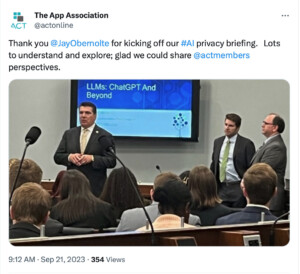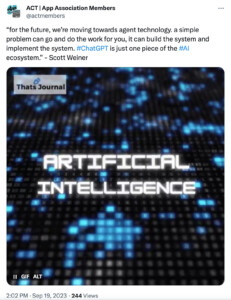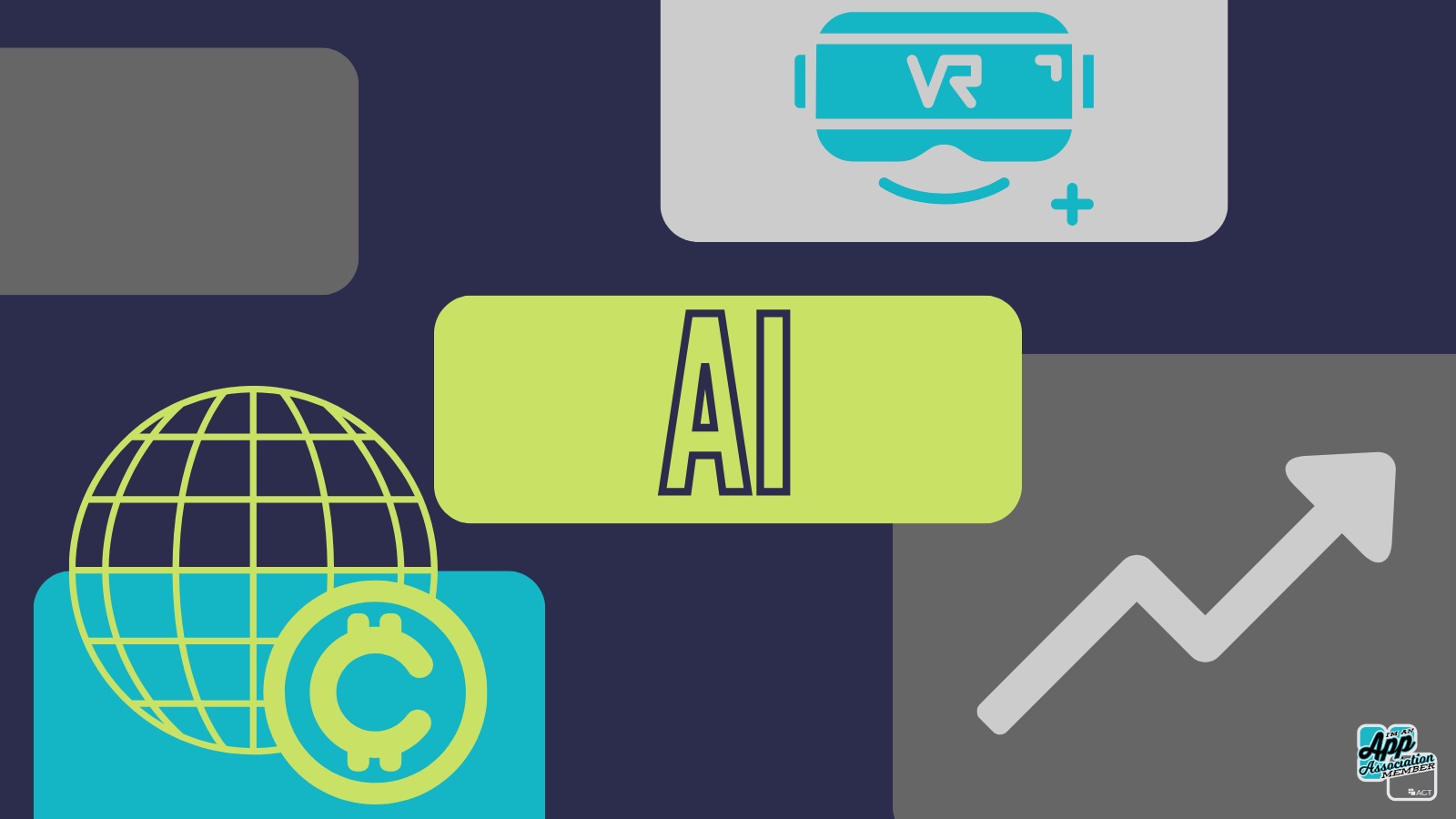In the past year, the topic of artificial intelligence (AI) has captivated business leaders, consumers, and policymakers alike. And while AI has been around for decades, with app makers using it for a wide range of purposes, generative AI’s recent strides into consumer consciousness have brought more scrutiny to these technologies.
Many ACT | The App Association members work with cutting edge technologies like AI and are excited about the prospect of generative AI’s applications when it comes to their work. With this in mind, the App Association hosted the event “Beyond ChatGPT: How Experts Use Generative AI,” an in-person Capitol Hill briefing to address how AI is making a difference in work now and possibilities for the future.
This event featured Scott Weiner, CTO of member company NeuEon, Inc., an app economy expert with years of experience in building customized AI solutions. Before Scott delved into AI generally, as well as ChatGPT and how it can be used effectively to improve businesses, we welcomed opening remarks from Congressman Jay Obernolte, co-chair of the Congressional AI Caucus, on the importance of understanding emerging technologies like AI. Along with a better understanding of the technology and how it works, he asked the staffers in the room to first look at how current law applies before creating new bureaucracies or other sweeping interventions—and we agree, that’s our number one AI policy recommendation.

Throughout the discussion, attendees learned that AI is only as good as its training data. Scott highlighted how ChatGPT is constantly learning and can remember what is important in context. ChatGPTs ability to recall the data it’s been trained on is what makes this type of generative technology possible. Thus, when users provide enough context when using ChatGPT, it results in the most accurate outcomes.

It wouldn’t be a conversation about tech without mentioning data privacy – one of the most pressing issues around AI. Scott emphasized just how critical it is for businesses to help protect the data privacy of clients while using generative AI. Throughout the discussion, Scott presented multiple examples of the tech-driven strategies businesses use to protect the privacy of data that fuels generative AI and urged thecongressional staff attendees to appreciate the role these tools play when approaching AI and privacy.

The overarching theme of the briefing was that AI, when used responsibly, can improve people’s lives. AI gives businesses a huge advantage in productivity. For software developers, this productivity amplification means allowing development schedules to be more streamlined and ultimately giving people more time to spend on health, with loved ones, or building the next great product. Despite all the amazing applications, it is particularly important to understand that, like humans, AI is not always perfect and will only improve with time.
While we did not record this briefing, you can find a thread of insights from Scott Weiner on X (Twitter)here. You can also learn more about AI in our ongoing “AI Will Always Need You” blog series.
